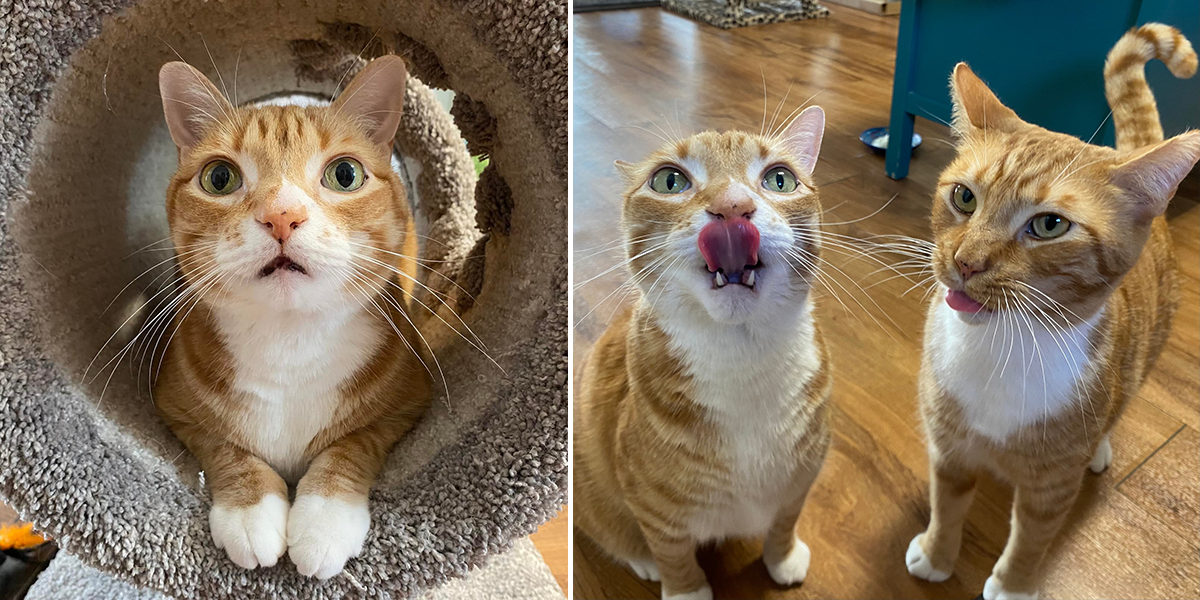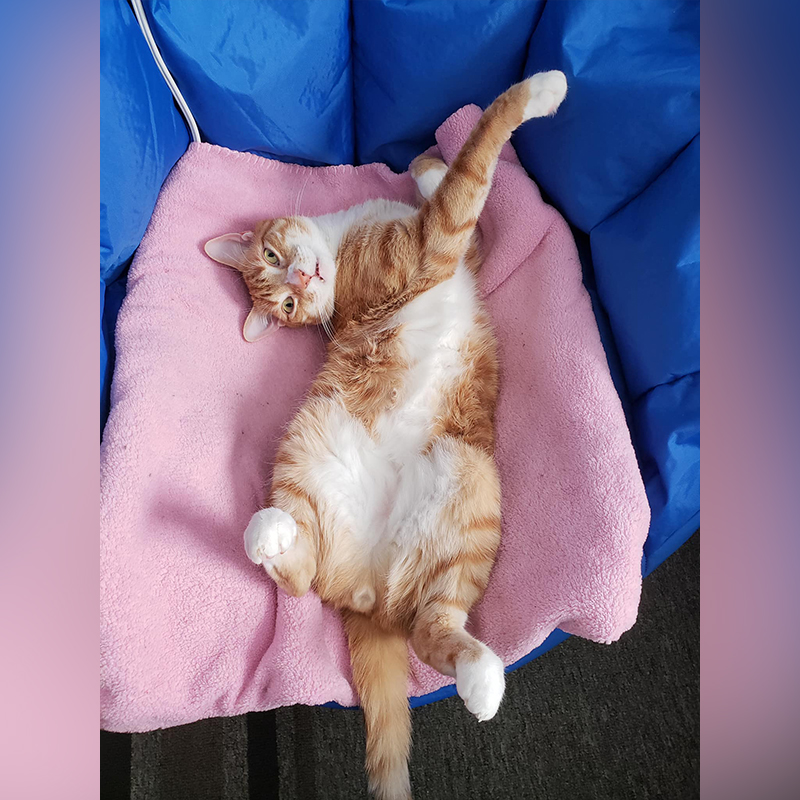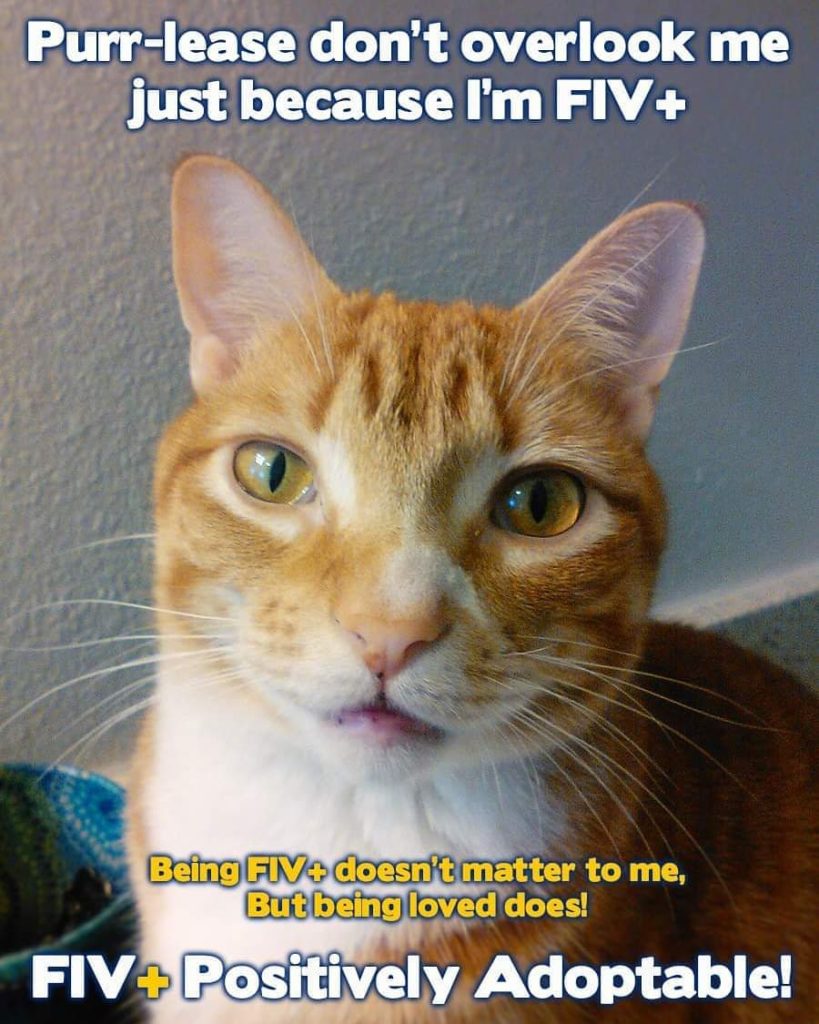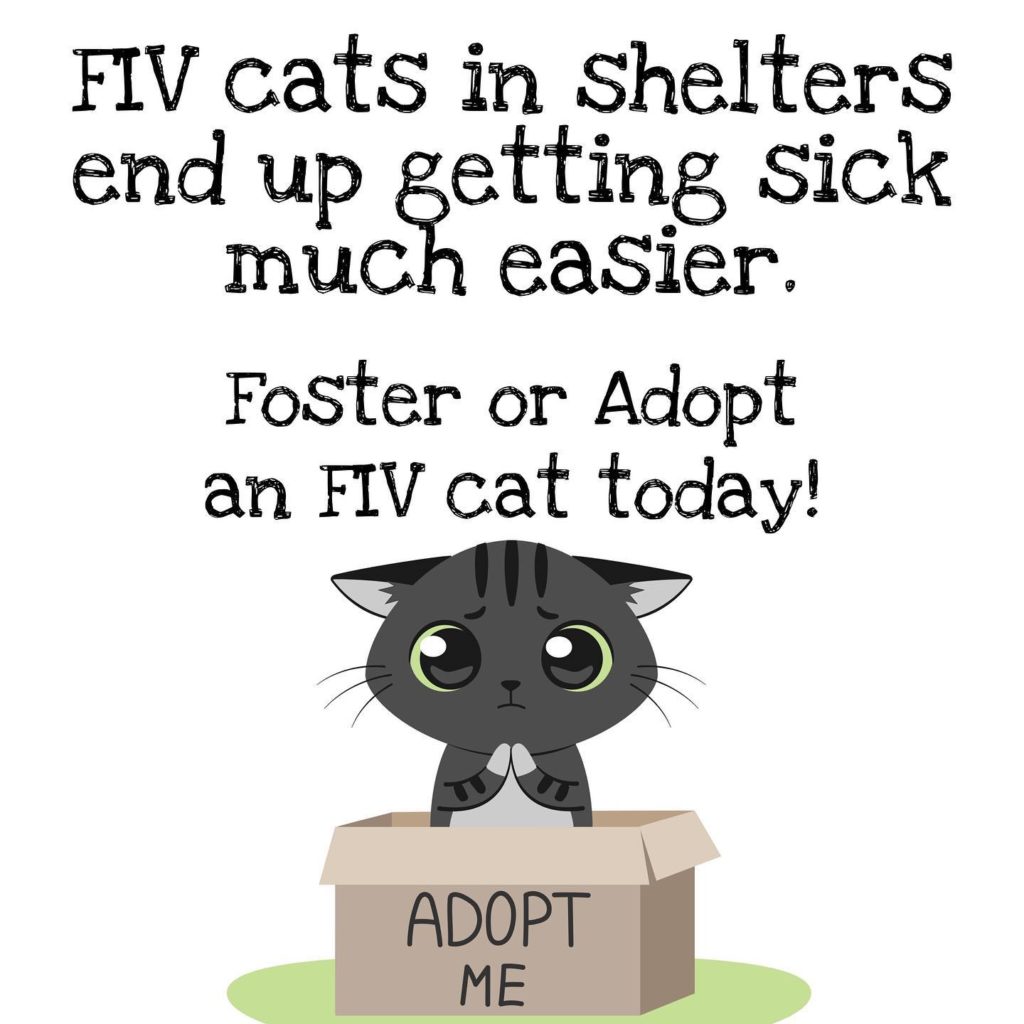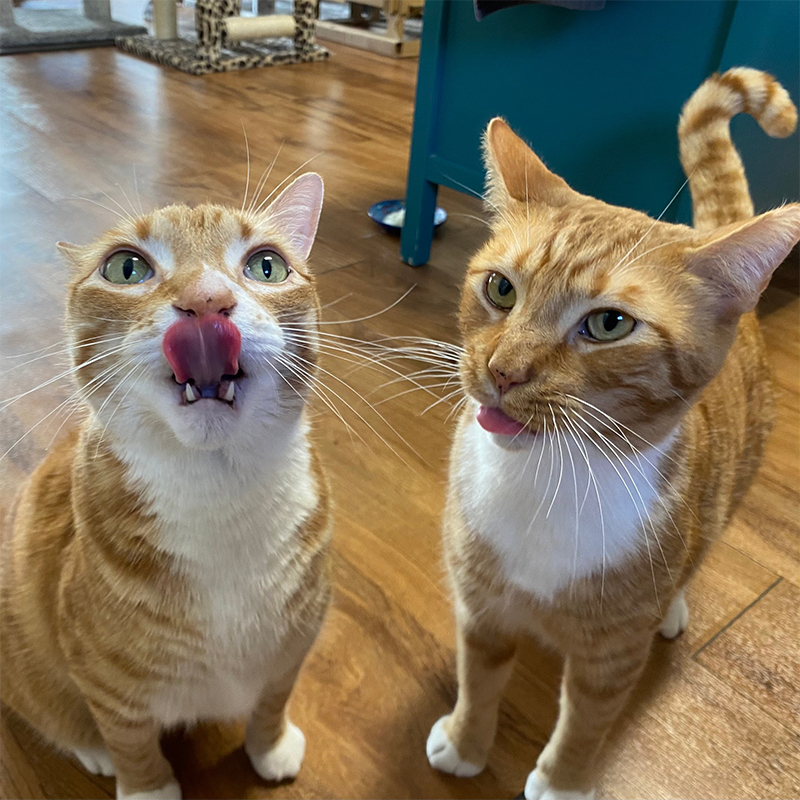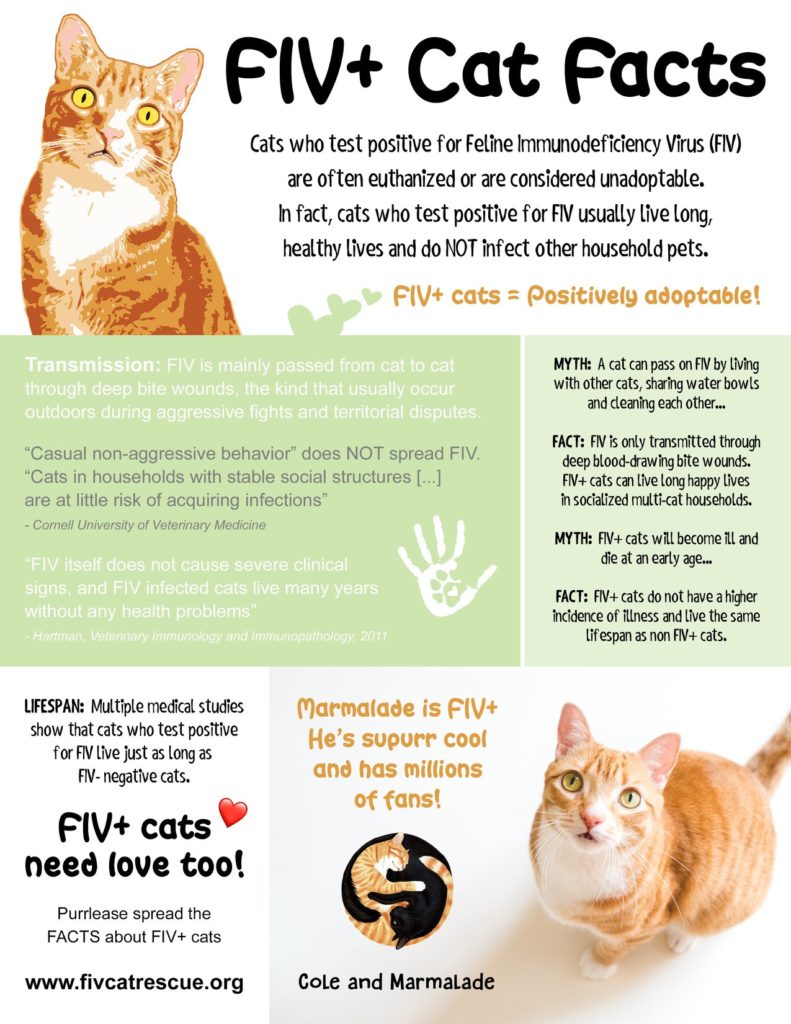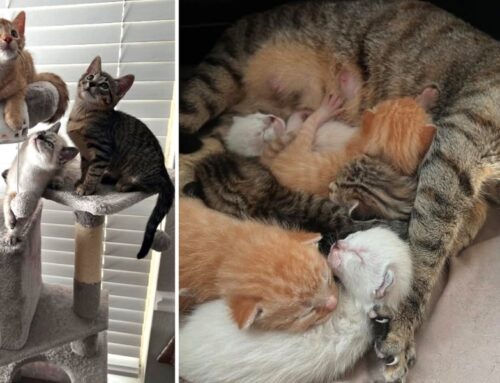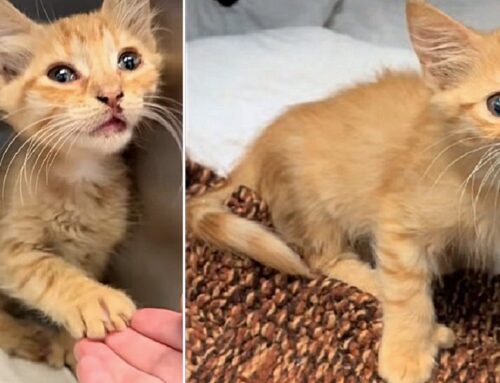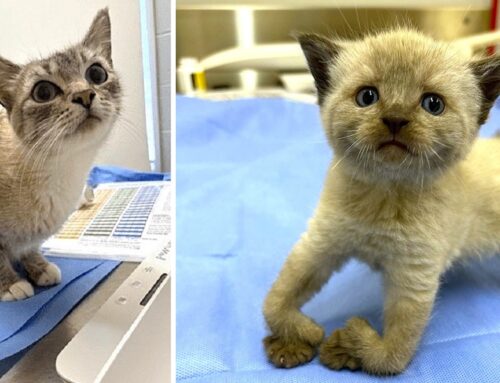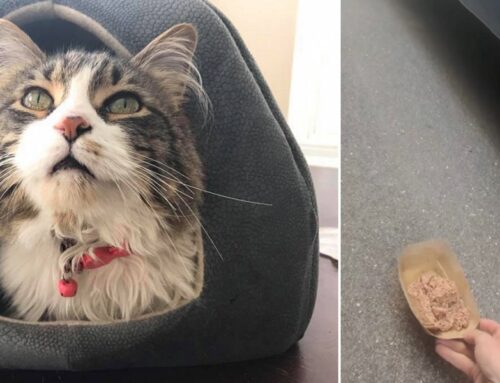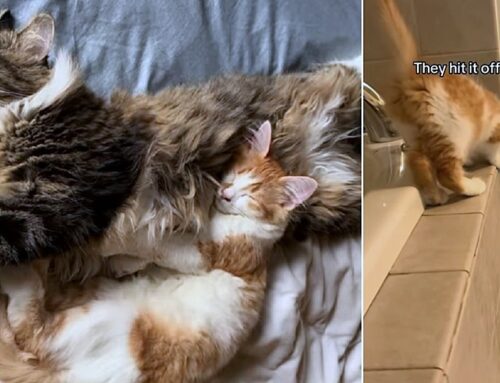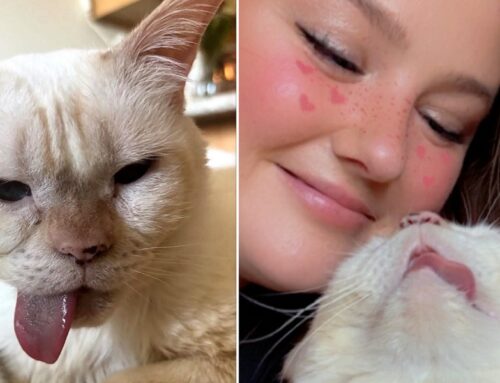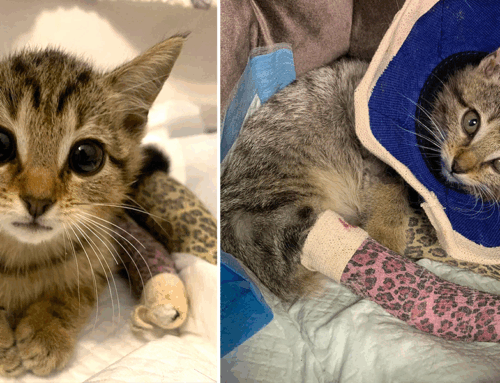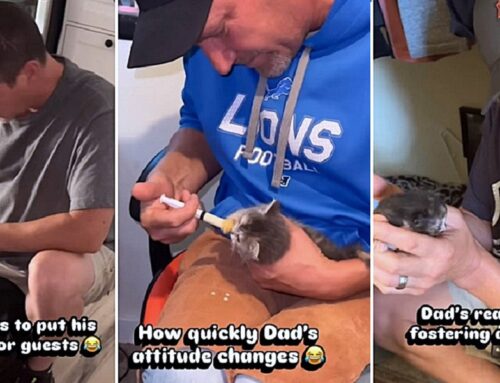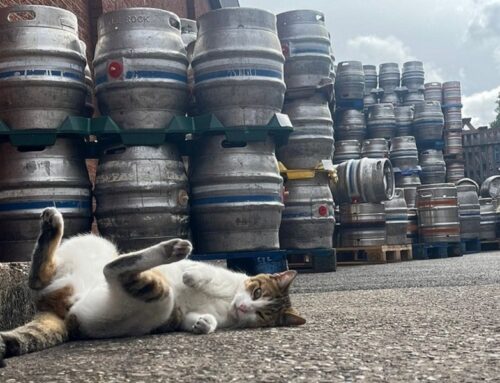As many of you know, Marmalade is FIV+, acquired from his mother at birth. Despite this, our favorite ginger tabby named after British jam has enjoyed a spectacular life. He kicked cancer’s butt, and having Feline Immunodeficiency Virus (FIV) doesn’t hold him back one bit either.
And we love to report when there are breakthroughs that help FIV+ cats like Marmalade! We happily share the news about an innovation in diagnostic testing that will help untold numbers of cats like Marm.
In 2014, veterinarians discovered Marmalade was FIV+ and had GI lymphoma possibly caused by another common virus, (FcaGHV1), in cats.
Note: FIV isn’t transmittable to humans.
At the time, the virus was only recently discovered, and there was no diagnostic test. No more, because Dr. Shana Owens from the University of Arkansas developed a quick, easy test for cats. With a small blood sample, veterinarians can determine if the virus is present in minutes. By catching it early, vets have the best chance to stop cancer.
A Gel to Help Treat FIV+ Cats
And we’re happy to share news of another development with the potential to help cats with oral health issues. As many as 3 out of 4 cats may suffer from oral health issues.
As you know, FIV can depress the immune system, and FIV-positive cats can exhibit symptoms including dental disease.
For house cats like Marm, routine veterinary checkups can keep potential problems in check. Recently, Marmalade had a dental checkup and his teeth, gums, and roots look great.
But for strays and shelter cats, their oral health can deteriorate quickly for many reasons.
Cats with Dental Disease
When veterinarians treat shelter cats’ mouths, there can be profuse bleeding from the gums. Recently, we were happy to learn a new gel is available to help stop the bleeding in cats, so we wanted to get the word out.
Note: Cole and Marmalade aren’t affiliated with the companies or products in this article and just want to raise awareness of the potential for cats. (We can’t confirm claims or effectiveness.)
It’s called Vetigel, a plant-based “prescription hemostatic gel for veterinary use” that claims to control bleeding in seconds on contact. According to a testimonial from Diane Woods Young DVM from the Feline Medicine & Surgery Clinic in Edmond, OK, Vetigel made a big difference for cats at a shelter.
Woods Young discussed treating cats with dental disease in a ward for FIV+ cats at a no-kill shelter. Before using the gel, the vets had to use gauze to stop the bleeding, and it filled a trash bag. After ordering the gel, Woods Young could successfully treat a cat with severe dental problems. Previously, this kitty was considered untreatable due to hemorrhages.
“I sent the cat home the same day, and that’s never happened before because they bled so bad,” she said.
With the tool to stop the bleeding, surgery times were cut down “at least half if not more, which is a really good idea for an FIV+ cat,” she notes. By saving so much time, the vet was able to help more cats during the day too.
If this is true, then the potential to help cats, particularly shelter cats, looks amazing. We hope it lives up to the claims here. If so, it could offer an amazing new tool for vets treating cats and animals in general.
Video by Vetigel:
Facts About FIV and FeLV
Previously, we’ve shared facts about FIV, frequently confused with Feline Leukemia Virus (FeLV). While cats can be vaccinated against FeLV, there is not currently one for FIV.
Importantly, indoor cats have a very low risk of transmitting FIV. Here’s Marmalade with FIV- Bond, and their tortie princess sisters Jugg & Zig Zag are negative for FIV too.
When cats fight aggressively, deep puncture wounds are possible. Then, the FIV retrovirus can be transmitted. That’s why the virus mostly affects outdoor cats and strays that frequently get into very serious territorial fights.
In most cases, cats with FIV live long, healthy lives. FIV+ Cats = Positively Adoptable!
See more in our video below:


